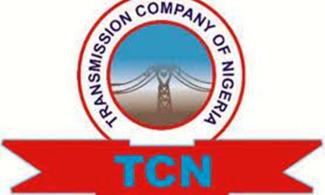
Residents of Dejuwogbo/Alado community of Likosi, Ishagamu local government area of Ogun State and Ikorodu community in Lagos State have decried the manner in which the Transmission Company of Nigeria proposed to acquire their lands and other real properties for the construction of Esia of Lagos and Ogun states Transmission Lines and Associated Substations Project (Lot 3).
According to some of the residents who spoke to SaharaReporters, TCN undervalued their properties and used armed operatives of the Nigerian Security and Civil Defence Corps to intimidate them.
It was gathered that the agency first came to the communities in 2018 to inspect and value the residents' properties. However, in the agreement documents issued to the residents by the agency which were obtained by SaharaReporters, it was observed that the agency offered to pay within the range of N2million for a 3-bedroom apartment and N740,000 for cash crops.
While justifying the purpose of the project, the agency's report read, “Lagos and Ogun States to a certain extent are the nerve centers of Nigeria; hence, account for significant proportion of load demand from the national grid. The new power plants in the South normally transmit to the North through the areas of highest demand (Lagos).
And presently the transmission system around the area has limited capacity as a result they constitute bottlenecks. Hence, the need to expand the network to improve stability and reliability.
"The sustainability of the project has been considered on three premises - technical, economic and environmental and social. Technically, the technologies, materials and equipment and personnel are available. On the economic premise, the funds for its execution are available and the project output is awaiting uptake by the consumers through Ikeja, Eko and Ibadan DISCOS in return for tariff payments. Environmental and social sustainability stem from the complete acceptance of the project by host communities, the careful identification and mitigation of project negative impacts and TCN's commitment to the implementation of all developed project's management plans.
"Three options were considered; the do-nothing option which would result in the continuation of reliance on the present insufficient and unreliable transmission network around Lagos, further resulting to the use of domestic and industrial generators which would lead to increase gaseous emissions with its associated health effects.
"The second option was to delay the execution of the proposed project while the third option was to execute the proposed project now to bring its benefits to bear on the economy positively. The first two options were therefore rejected in favour of the third. The chosen option was subsequently subjected to various project alternatives, principally based on substation sites and technology; and transmission line routes and capacity selection and technology. For substation sites, availability of land, distance and corridor for the associated transmission line were considered.
"Multi-criteria analyses were used to analyse the alternative line routes, which took into consideration of the economic, technical, environmental and social criteria to arrive at the optimal alternative.
"Considering technology, two alternatives were analysed for the substations. The Air-insulated Substations (AIS) was chosen for all the substations because it is easier to operate and maintain as well as less expensive compared to the Gas-insulated Substation (GIS)," the report added.